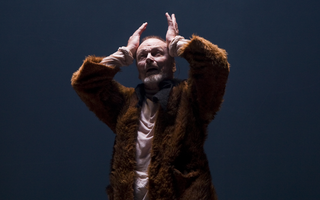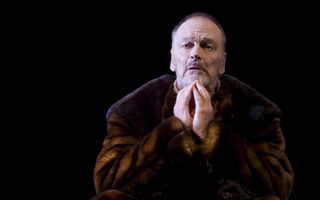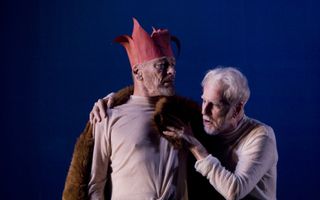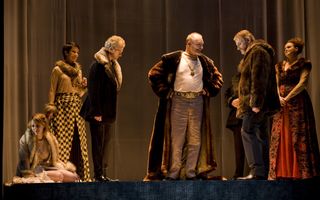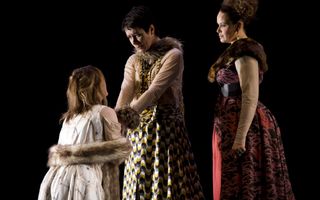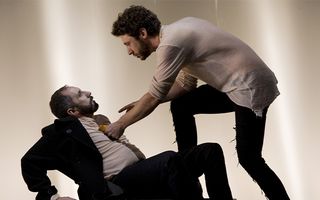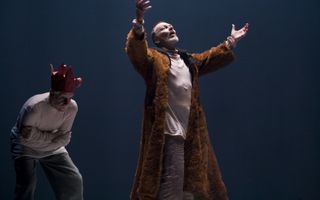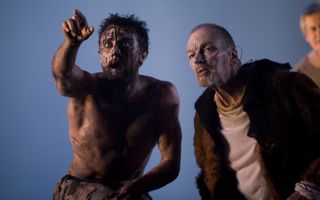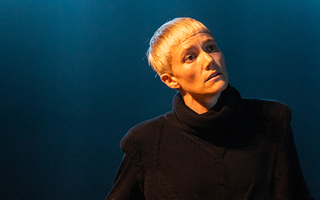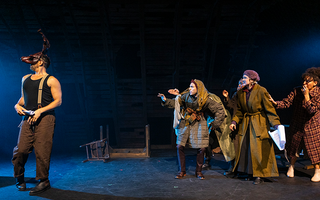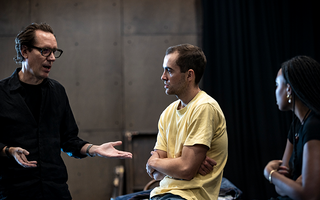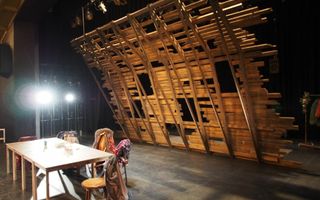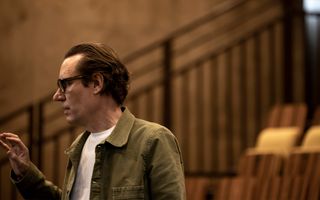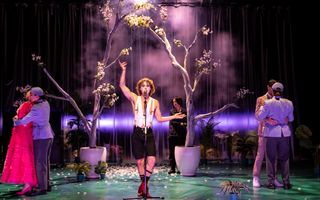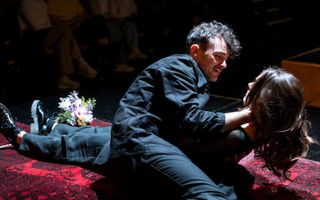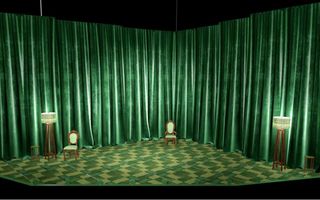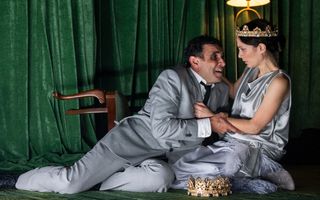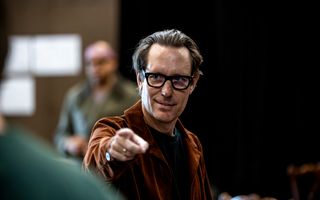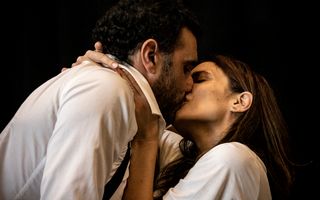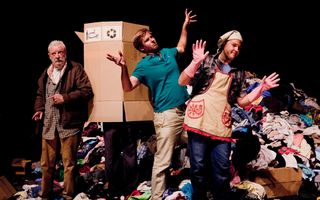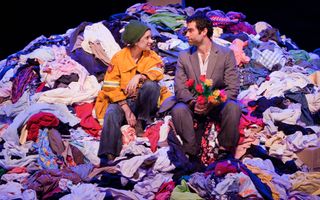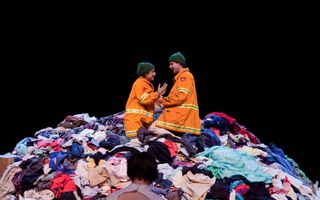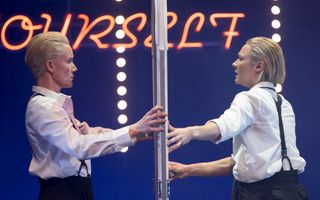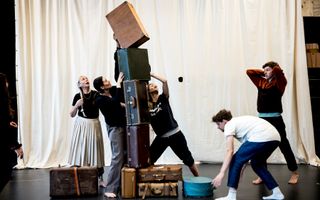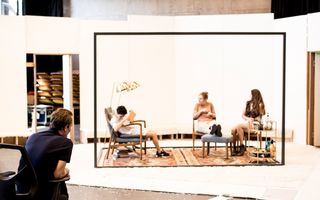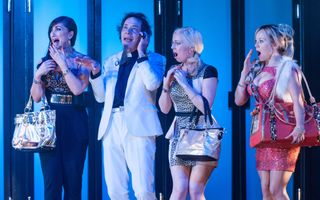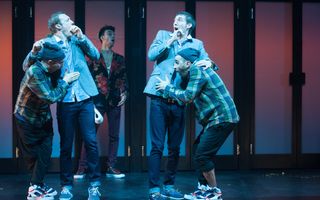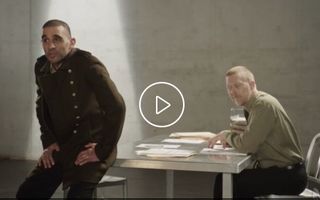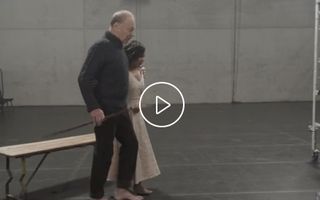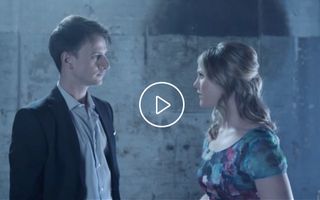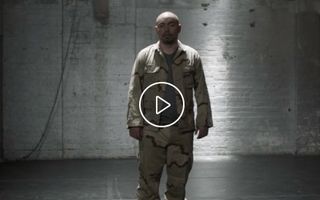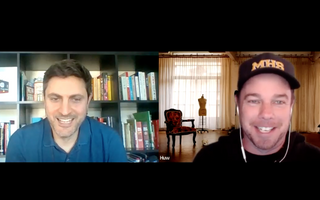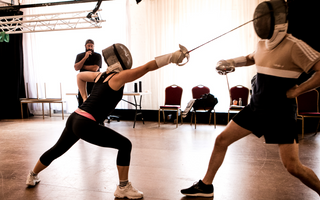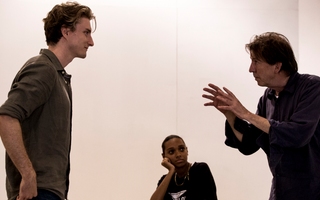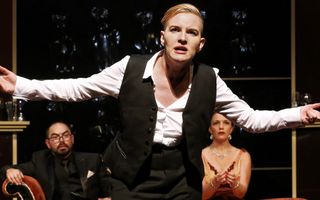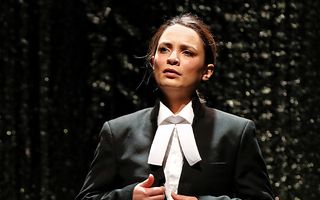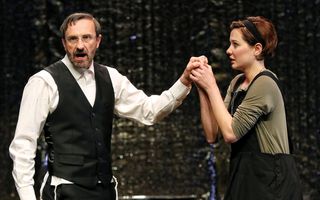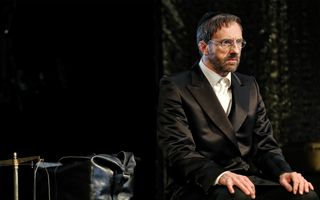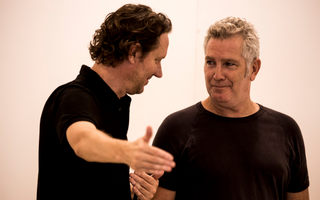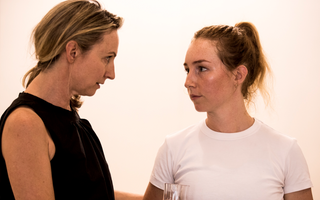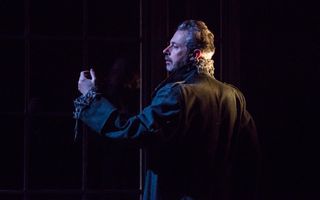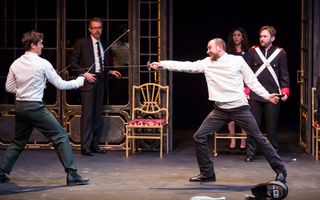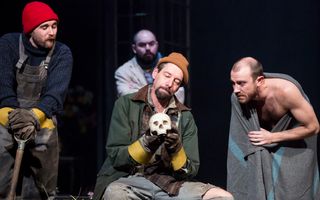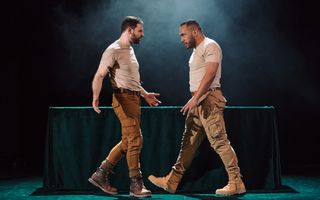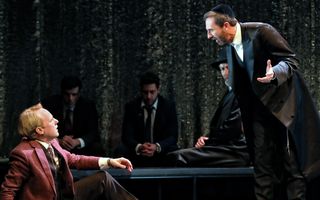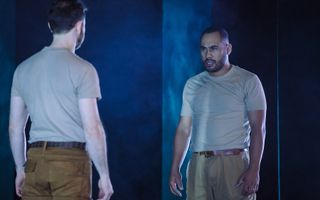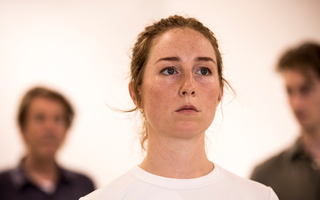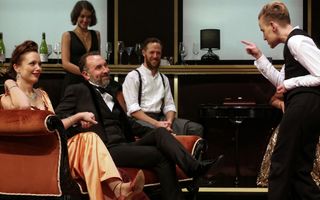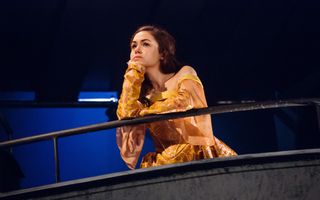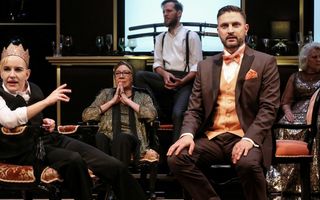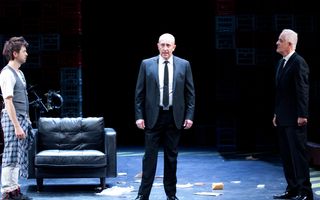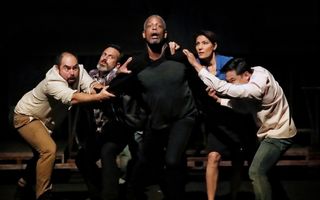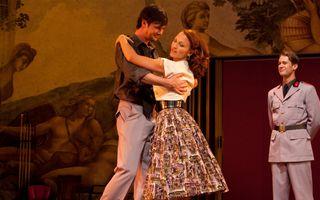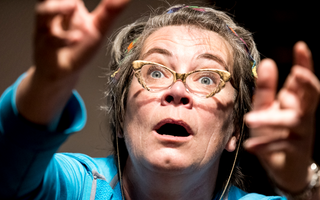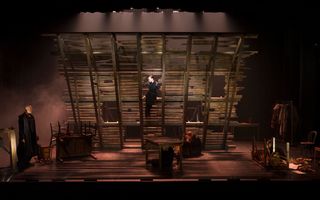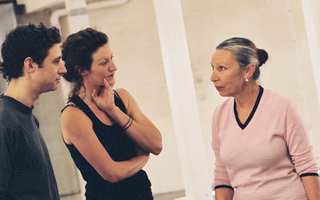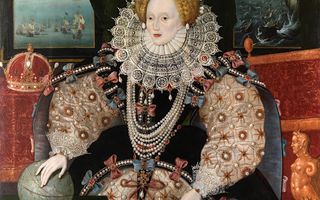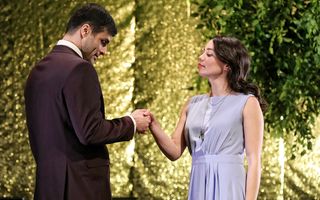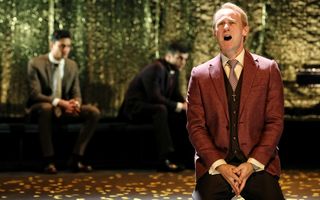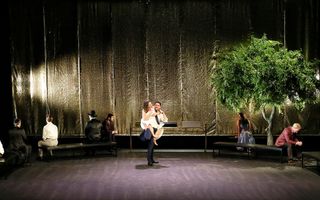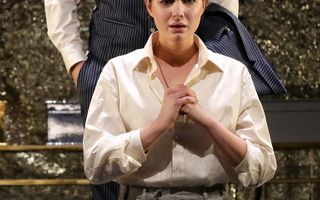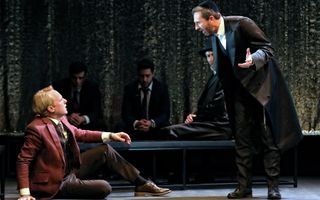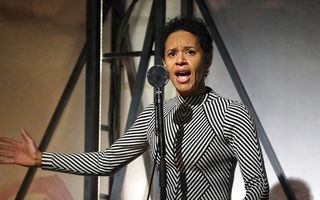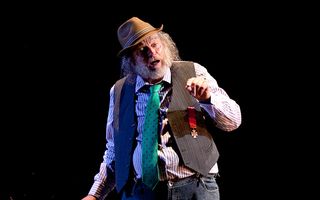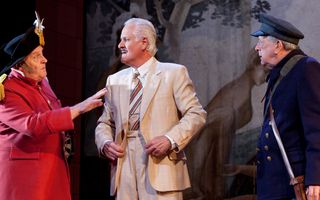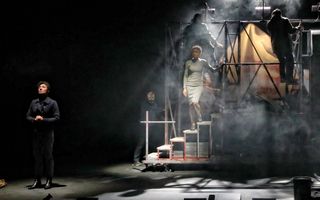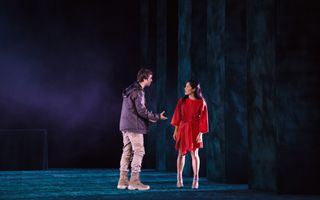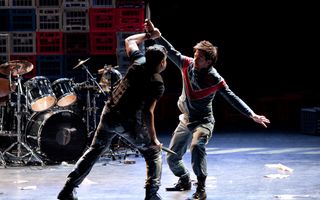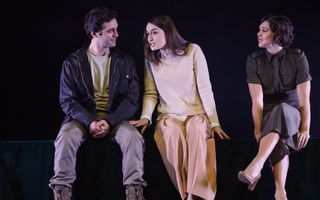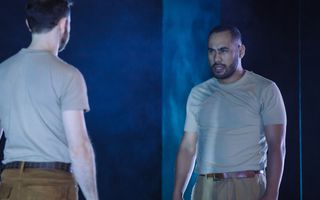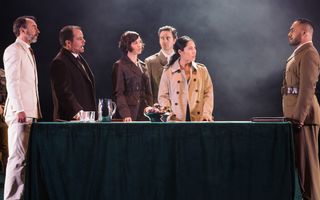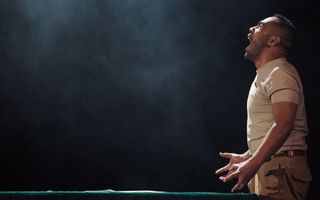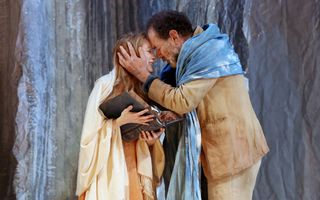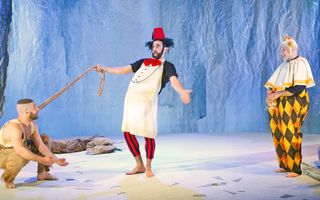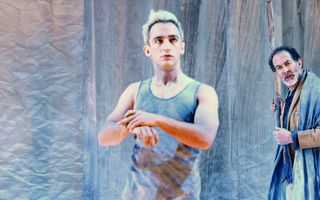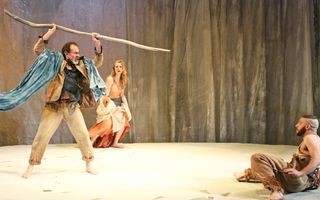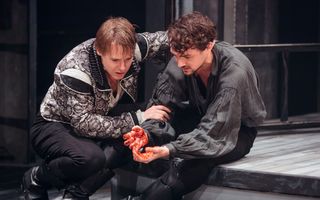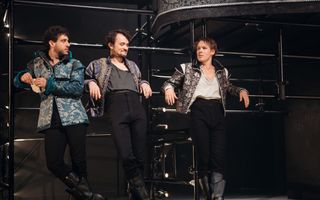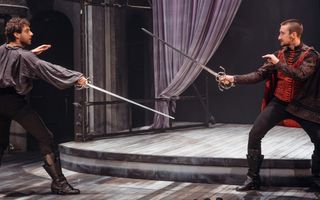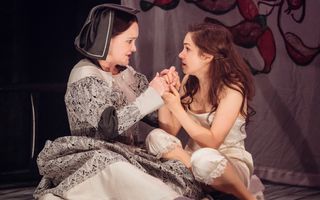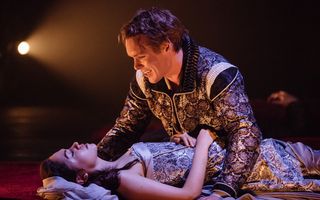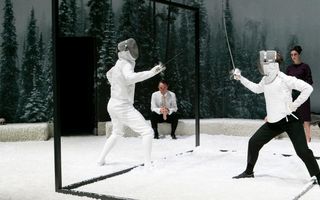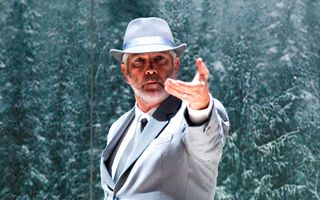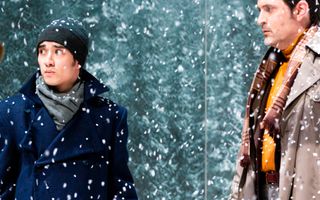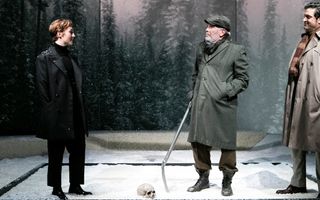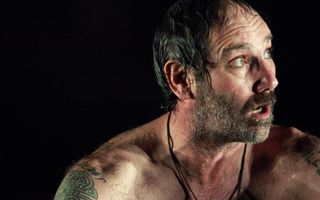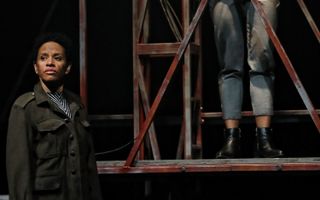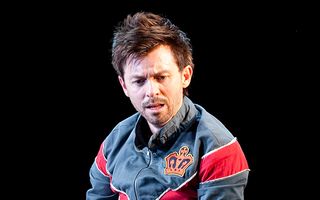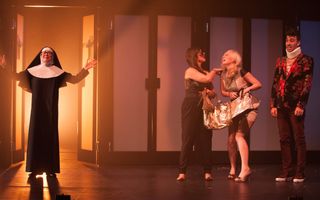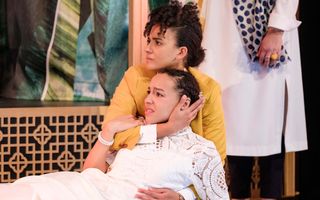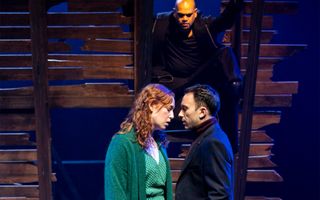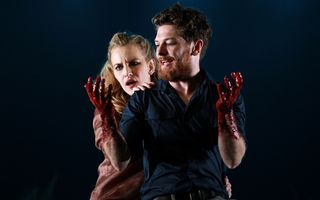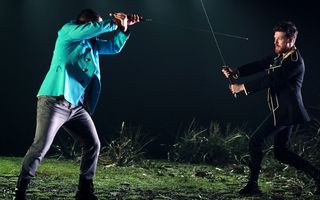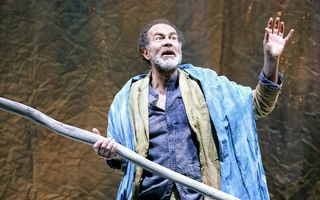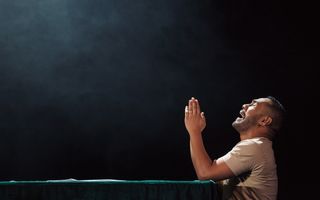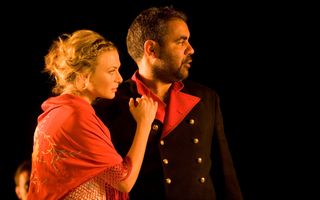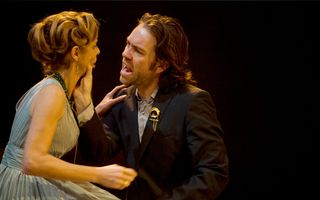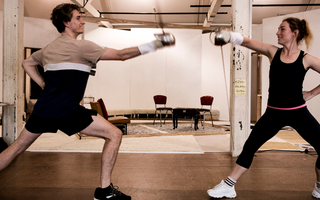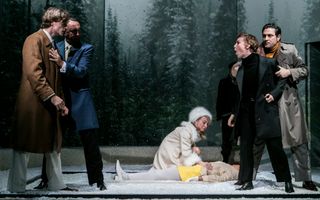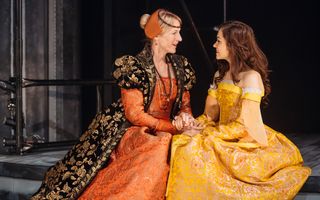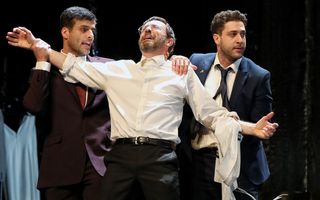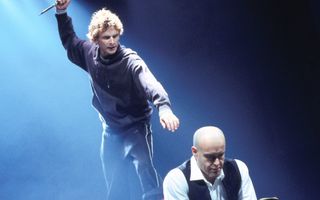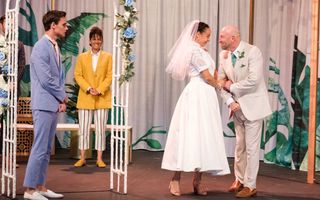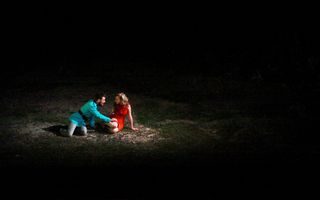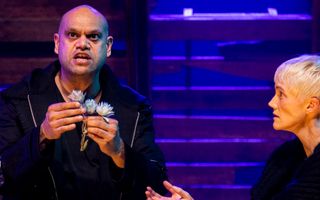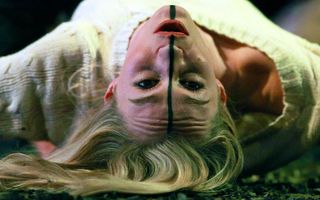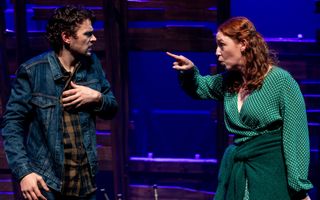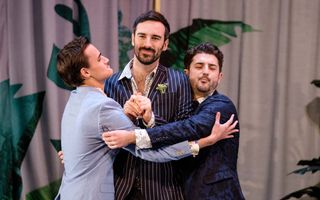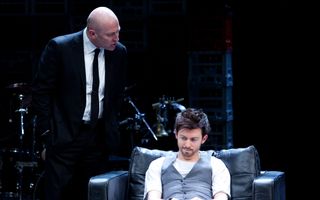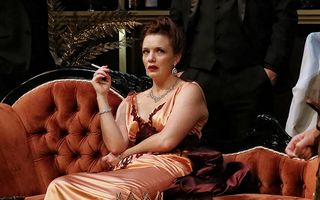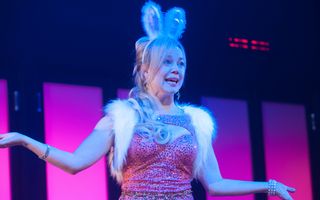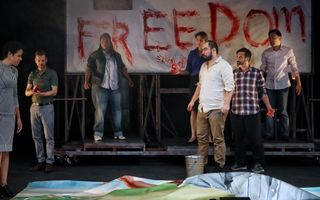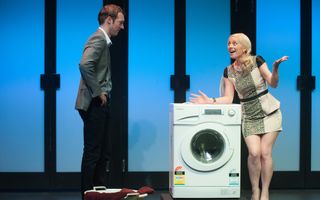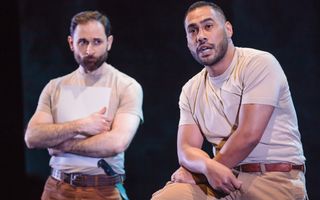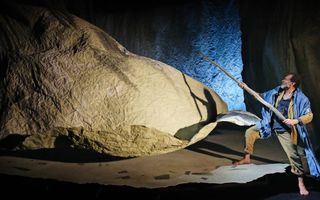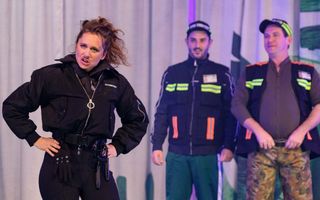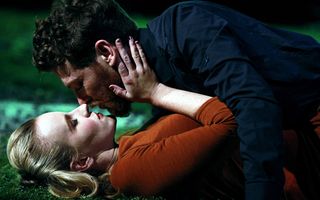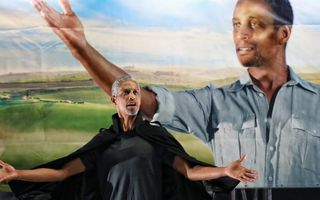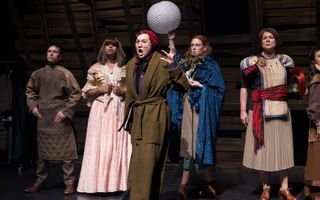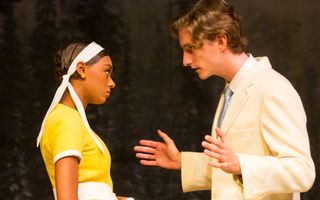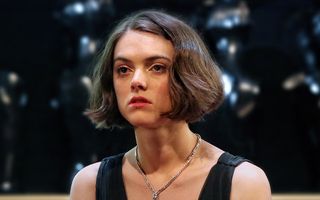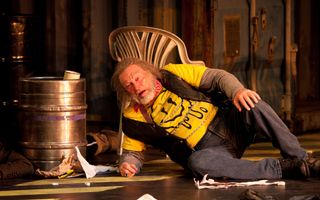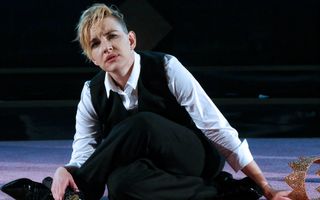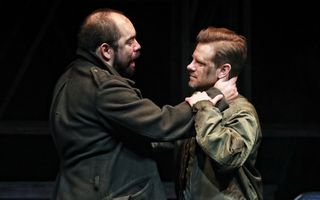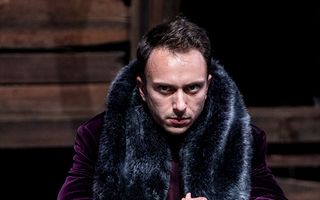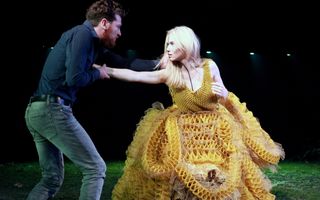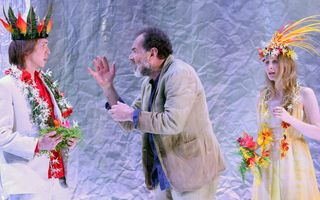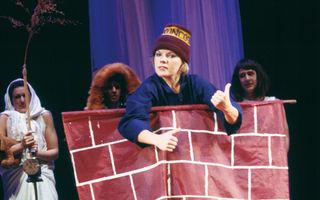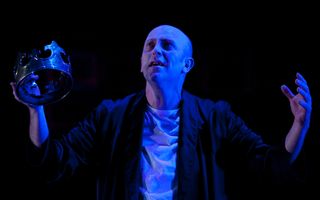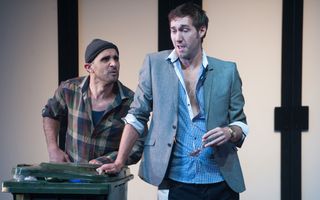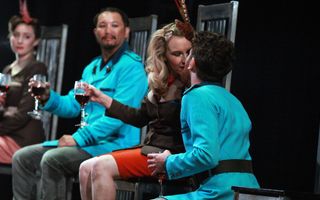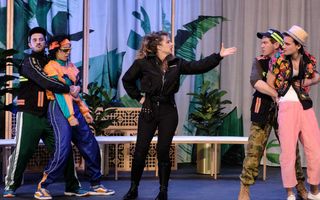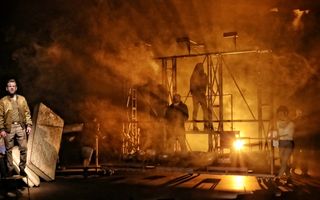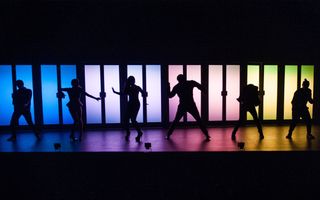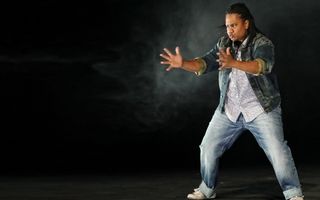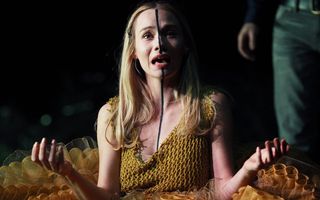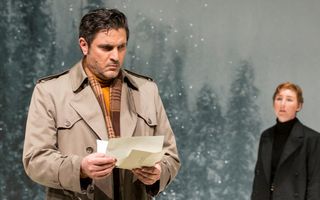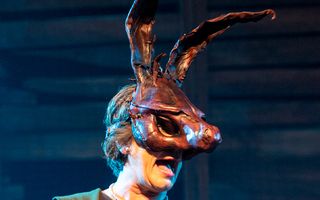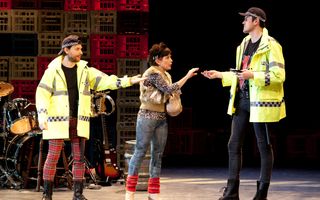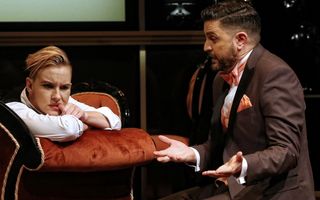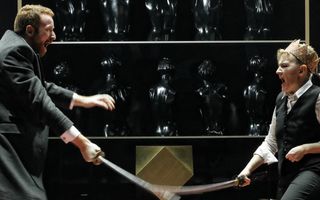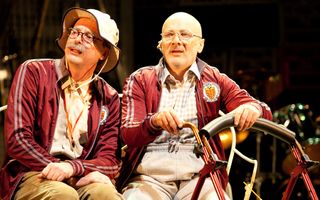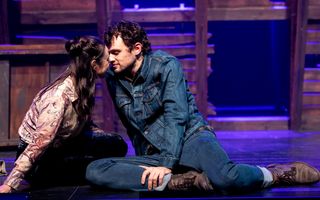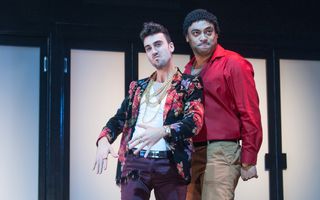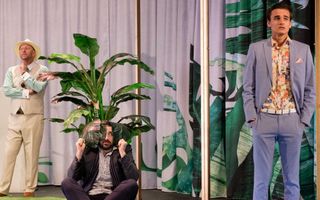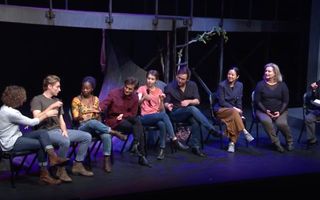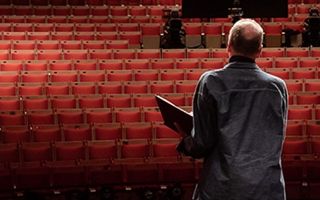Shakespeare utilises imagery masterfully in Henry V, particularly in his use of the Chorus, tackling head on the challenge of igniting his audience’s imagination and transporting them to vast fields of battle, majestic French castles and lowly taverns in backwaters of Britain.
Can this cockpit hold
The vasty fields of France? or may we cram
Within this wooden O the very casques
That did affright the air at Agincourt?
Act 1, Prologue
The Chorus strives to engage not only our visual imagination, but our entire sensory experience of the unfolding story. Just like the sound design in a film supports the narrative, so to does Shakespeare's Chorus build the landscape of the scene:
From camp to camp through the foul womb of night
The hum of either army stilly sounds,
That the fixed sentinels almost receive
The secret whispers of each other's watch...
Act 4, Prologue
Read on for a discussion of some of the key images Shakespeare explores in Henry V.
Lions and royalty
One of the most common animal images used in Henry V is the image of a lion. Characters who have power and influence – especially monarchs – are compared to lions throughout the play. In Act 1, Scene 2, Canterbury describes Henry’s great uncle, Edward the Black Prince as a “lion’s whelp”, or lion cub. In the same conversation, Exeter compares Henry’s ancestors to lions:
Your brother kings and monarchs of the earth
Do all expect that you should rouse yourself
As did the former lions of your blood.
Act 1, Scene 2
Later in the play, Henry refers to the ‘demon’ that tempted Cambridge, Grey, and Scroop to betray him as having a “lion gait” (Act 2, Scene 2), which is congruous with the biblical image of the devil as the ‘prince of the Earth’.
In Act 4, Scene 3, Henry says, “The man that once did sell the lion’s skin / While the beast lived, was killed with hunting him”. This is a play on a popular proverb at the time, “sell not the bear’s skin before you have caught him”, implying that you should not pre-emptively assume victory or success. By referring to a lion instead of a bear, Henry places himself at the heart of the metaphor, as the animal being hunted by France, and suggests that the French army should not assume that they are going to defeat England in battle.
Beasts and birds of prey
At several points in Henry V, Shakespeare uses the image of predatory animals, crouched and ready to pounce, to illustrate descriptions of war. In the prologue of Act 1, the Chorus anthropomorphises Famine, Sword, and Fire, describing them as hounds at the heels of Henry V:
Then should the warlike Harry, like himself,
Assume the port of Mars, and at his heels,
Leashed in like hounds, should famine, sword and fire
Crouch for employment.
Act 1, Prologue
In Act 1, Scene 2, Westmoreland says,
For once the eagle England being in prey,
To her unguarded nest the weasel Scot
Comes sneaking and so sucks her princely eggs,
Playing the mouse in absence of the cat.
In these lines, Westmoreland characterises warlike England both as an “eagle . . . in prey” and as a cat, and Scotland as a weasel and a mouse. Act 3, Scene 1, Henry tells his soldiers to “imitate the action of the tiger: / Stiffen the sinews, conjure up the blood, / Disguise fair nature with hard-favored rage”. Later in the same speech he says, “I see you stand like greyhounds in the slips, / Straining upon the start.” Here, Shakespeare invokes the image of soldiers as beasts of prey, allowing their fighting instinct to propel them into action.
Greek and Roman mythology
Shakespeare often calls on images from Greek and Roman mythology in his work, and Henry V is no exception. In the opening speech of the play, describes “the warlike Harry” bearing “the port of Mars” (Act 1, Prologue), Mars being the Roman god of war. Henry is also described as being like Jove (Act 1, Scene 2), who was the god of thunder in Roman mythology. Later, he is compared to the Roman and Greek god Phoebus – the god of the sun (Act 3, Prologue). These images suggest a man of honour, virtue and glory.
One of the primary references Shakespeare utilises in this play, as is often with his works, is Greek/ Roman Mythology. It is particularly prevalent in Henry V however, with Shakespeare seeming to make a myth out of the King of British legend. Shakespeare describes his protagonist both as ‘Jove’ - the Roman term for the Greek God Zeus, and Phoebus, synonymous with the Greek Apollo, the God of Light. These images bring to mind a man of Honour, virtue and glory. However, Shakespeare also calls for Henry to “Assume the port of Mars”, and wield the fury of the God of war.
Sport and tennis
For Henry, his past haunts him throughout the course of this story. One particularly comical and odd image which appears early in the play is that of a chest of tennis balls being delivered to the King by the French Dauphin. This jab at Henry alludes to his past of ‘sport’ - the time he spent in his youth gallivanting with common folk and delaying his calling to royalty. Henry goes on to add to this image, turning the tennis balls into cannon balls with his declaration of war:
And tell the pleasant prince this mock of his
Hath turned his balls to gun-stones, and his soul
Shall stand sore chargèd for the wasteful vengeance
That shall fly with them...
Act 1, Scene 2
Henry turns this image against the Dauphin, and characterises the war they are about to engage in as a tennis match:
When we have matched our rackets to these balls
We will in France, by God’s grace, play a set
Shall strike his father’s crown into the hazard. . .
And tell the pleasant prince this mock of his
Hath turned his balls to gun-stones, and his soul
Shall stand sore charged for the wasteful vengeance
That shall fly with them.
Act 1, Scene 2
In this speech, Henry compares the tennis balls with cannonballs, suggesting that The Dauphin’s joke will trigger a bloody “match” of war between the two nations. Henry then extends this metaphor, saying “he [The Dauphin] comes o’er us with our wilder days, / Not measuring what use we made of them” (Act 1, Scene 2). In the same way that the tennis balls will be converted to ‘gun-stones’, Henry’s own past as a frivolous and wild youth will be used as the foundation for a fierce and warrior-like monarch who will “Be like a king and show my sail of greatness” (Act 1, Scene 2). His sportive past will be the foundation for the ‘tennis match’ of war that he is about to play.


